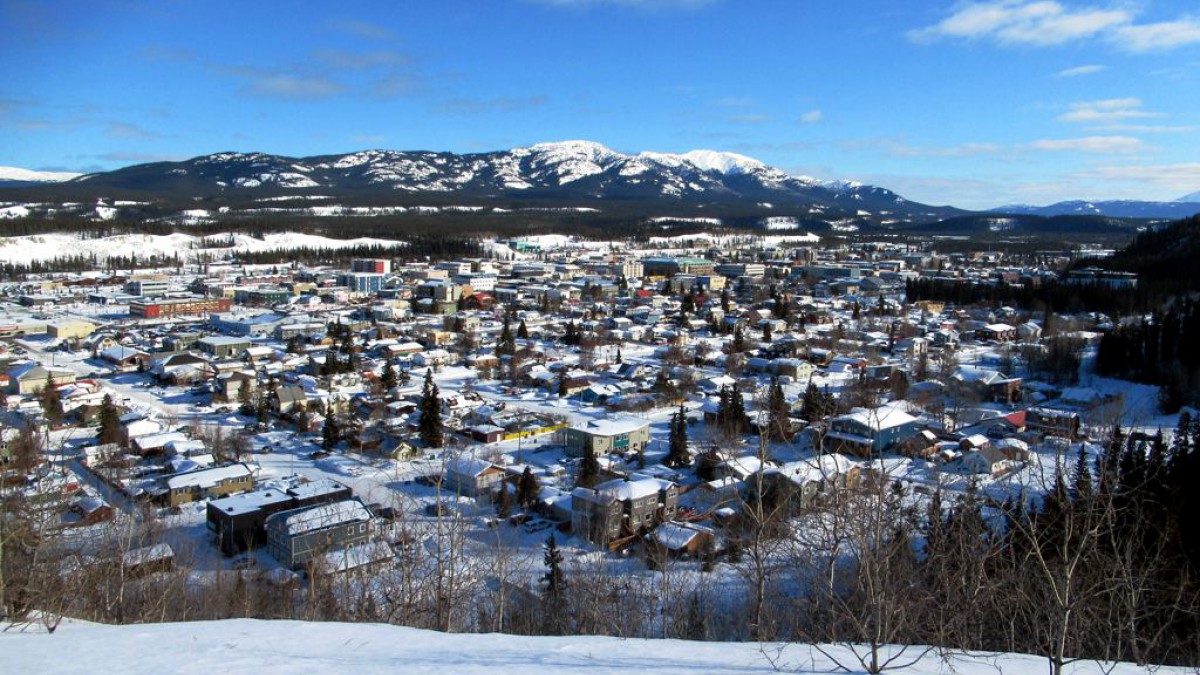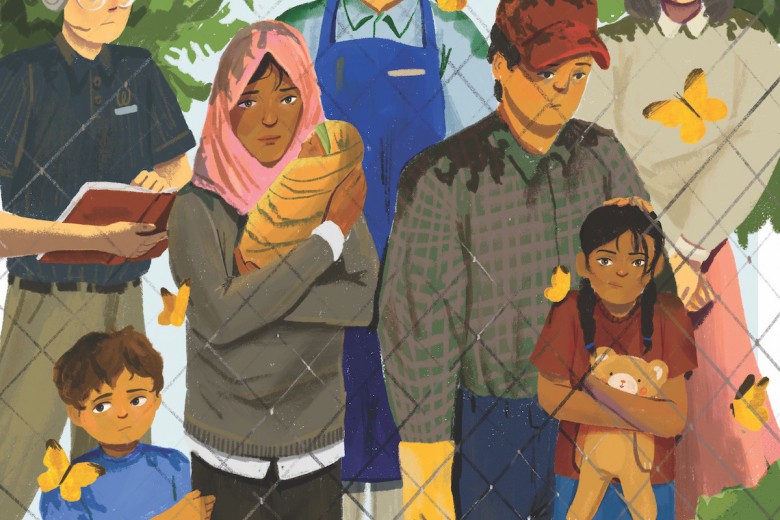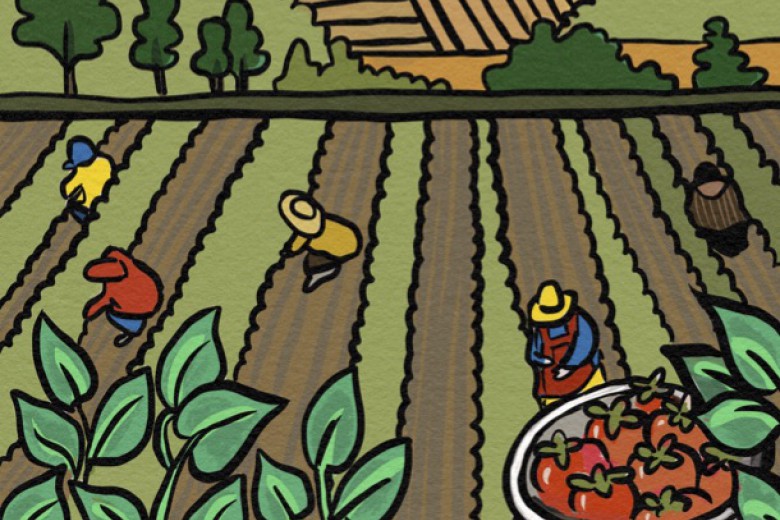In 2021, Shannon* moved to Whitehorse for a job in the service industry. The job was supposed to be based in Whitehorse, but the company was short-staffed and demanded Shannon cover shifts across the Yukon. She got the job through the Yukon Nominee Program (YNP), meaning that if she didn’t comply, she’d risk losing her job and status.
Shannon did as she was told and worked back-to-back 12-hour shifts, sometimes travelling as far as Dawson City, 533 km from Whitehorse, with little notice and no transportation or relocation support from her employer. After a year of this gruelling workload, she was fed up.
I’m a union organizer based in Whitehorse. A large part of my job consists of meeting non-unionized workers and helping them organize, and in 2022, Shannon and I met to talk about issues she’s facing at her workplace, which include no pay increases, few benefits, unreasonable work expectations, and a toxic work environment. She came to our meeting with a plan: unionizing her workplace.
And Shannon isn’t the only one. Over the last few years, hundreds of migrant workers have come to the Yukon through the territory’s nominee program only to face low pay, poor working conditions, and abusive bosses – and they’re organizing.
“Economically hostage”
The Yukon Nominee Program “helps employers fill job vacancies by bringing skilled workers to the territory.” In 2021, the Yukon government accepted 315 migrant workers, and the territory plans on bringing in 430 in 2024. Many workplaces participating in the YNP offer front-line service jobs.
As the Yukon’s housing crisis persists and landlords increase rents, migrant workers share one-bedroom apartments among as many as six people to save on rent and are still barely making ends meet. In remote communities outside of Whitehorse, employers are often also migrant workers’ landlords, meaning migrants’ housing, immigration status, and employment are in the hands of their employer.
“The problem with that is the employee can be economically hostage,” says Justin Lemphers, former president of the Yukon Federation of Labour (YFL). In his work at the YFL, Lemphers supported many migrant workers whose bosses were also their landlords. “Under the current system of the Yukon Nominee Program, the auditing of employees’ experience is completely complaint driven. I’ve helped two people who were employed by the same employer, [and] who were [also renting from] this employer and ended up being harassed. We filed a complaint through the proper channels of the Government of Yukon’s [Department of] Economic Development [...], which is tasked to review complaints of the Yukon Nominee Program, and we were deemed unsuccessful. This resulted in the employees losing their jobs, their housing, and leaving the country altogether.”
“There needs to be a serious question as to who this program serves and how it continues to create marginalized workers in the territory.”
Lemphers adds that to gain successful employment, the employees have to sign a tripartite contractual agreement between the employer, the employee, and the Yukon government. Yet the only auditing that occurs is when the government phones the employers to see how things are going. During his time at the YFL, few phone calls were made to employees, which Lemphers says results in a nominee program that has no real oversight representing the interests of workers.
“We need to unionize”
In 2020, Jarod* got a job working in assisted living through YNP and he migrated from India to Whitehorse. Earlier this year, he noticed bedbugs in the building where he works and immediately reported the infestation to his employer. Jarod and his colleagues were concerned about their health and safety – a number of them had scars from bites on their bodies – and he also worried about bringing them into his home. Months after reporting the infestation, his employer still refused to address it, so Jarod came to me and said “we need to unionize this workplace.”
Since then, I’ve been speaking to Jarod’s co-workers about unionizing. Most of his co-workers are on board and want to unionize, but the employer has threatened to revoke workers’ permits if they sign a union card.
These kinds of threats violate the Temporary Foreign Worker Program rules and regulations, and the Government of Canada is supposed to ban employers who are non-compliant from participating in the Nominee Program for five years and list them publicly. At the time of writing, only one Yukon employer is listed.
As the YNP increases the number of nominees, more workers labour under duress.
This doesn’t surprise Lemphers – he says the reporting system requires workers, who already face stressful and precarious employment, to report their employers’ behaviour, risking their jobs and, for some, their housing. Given the disproportionate risks workers face for speaking out, Lemphers believes it’s on unions and workers’ rights advocates to call for a review of the YNP. “There needs to be a serious question as to who this program serves and how it continues to create marginalized workers in the territory,” Lemphers says.
Though YNP workers must at least be paid the Yukon’s minimum wage of $16.77 per hour, the wage still isn’t enough to live on, so Jarod and many of his co-workers have second and third jobs to support themselves and their families. Since Jarod and his co-workers can’t unionize at the job that holds their permits without risking their immigration status, we’re trying a different approach: unionizing workers at their second and third workplaces. We’re hoping this will provide them with more stable working conditions and that in bargaining, we can push these employers to sponsor migrant workers so their primary employer has less power. Pulling off this campaign will require organizers to map all the companies employing migrant workers across the territory, assess which companies hold power over which migrants’ status and housing, and organize accordingly.
Since many migrants work for the same handful of companies in the Yukon, I’ve had to be really careful about my description of migrants’ work and identities in this article. Naming the country a worker is from, for example, could tip off their employer because there may be only one migrant worker in the territory who is from that country. I also had to limit descriptions of migrant workers’ jobs. For example, if migrant workers at a golf course were trying to unionize, the owners of the two privately-owned golf courses near Whitehorse would easily be tipped off. Approximately 40,000 people live in the territory, and about 70 per cent are based in Whitehorse, meaning word gets around quickly.
Unions with migrant workers
Migrant worker exploitation isn’t new in the Yukon – migrants have been fighting unjust conditions for years. In 2012, several Filipino workers at Tags Food & Gas spoke out about wage theft by their employer. They even reported the theft to the Yukon government, which dismissed their complaints. The government said that “your verbal words of stating this is not really good evidence, because me and my brother, who knows if we’re just making up stories,” a worker told CBC.
In 2015, restaurant workers Byung Wook Jun and G. Hong spoke out against their employer, Airport Chalet. The two men had moved from South Korea to Whitehorse through the YNP and say they were discriminated against and forced to work harder than their co-workers who weren’t migrants. They were then fired by the restaurant without just cause, and Hong’s work permit expired, forcing him to return to South Korea.
Migrant workers in the Yukon are fed up with their exploitative and dangerous working conditions. They want to unionize, and we need to respond to their call to action.
There’s a misconception that in the North, other than Indigenous peoples, there are no Black and racialized people. But Black and racialized people have been here for many decades, and our unions need to start reflecting that and prioritizing us. I’m the only Black staffer at the Public Service Alliance of Canada North Region, and that needs to change.
As the YNP increases the number of nominees, more workers labour under duress. Unionizing migrant workers at their second and third jobs is important, but we can’t rely on those employers to sponsor migrant workers. Winning permanent status and fair wages and conditions for workers will require Yukon’s labour movement to re-envision how we organize and do so on a different scale.
Migrant workers in the Yukon are fed up with their exploitative and dangerous working conditions. They want to unionize, and it’s time Yukon’s labour movement steps up to the plate to ensure migrant workers in the Yukon not only survive, but thrive. Migrant workers are the leaders in this fight and we need to respond to their call to action.
*Shannon and Jarod’s names have been anonymized and their job descriptions kept vague to protect their employment and immigration status.







